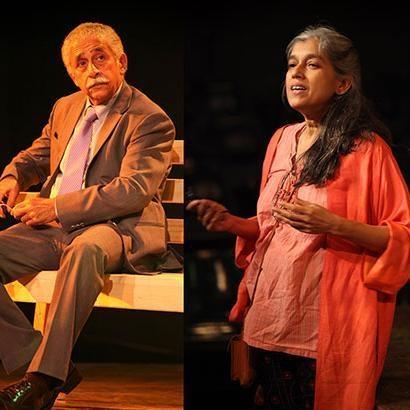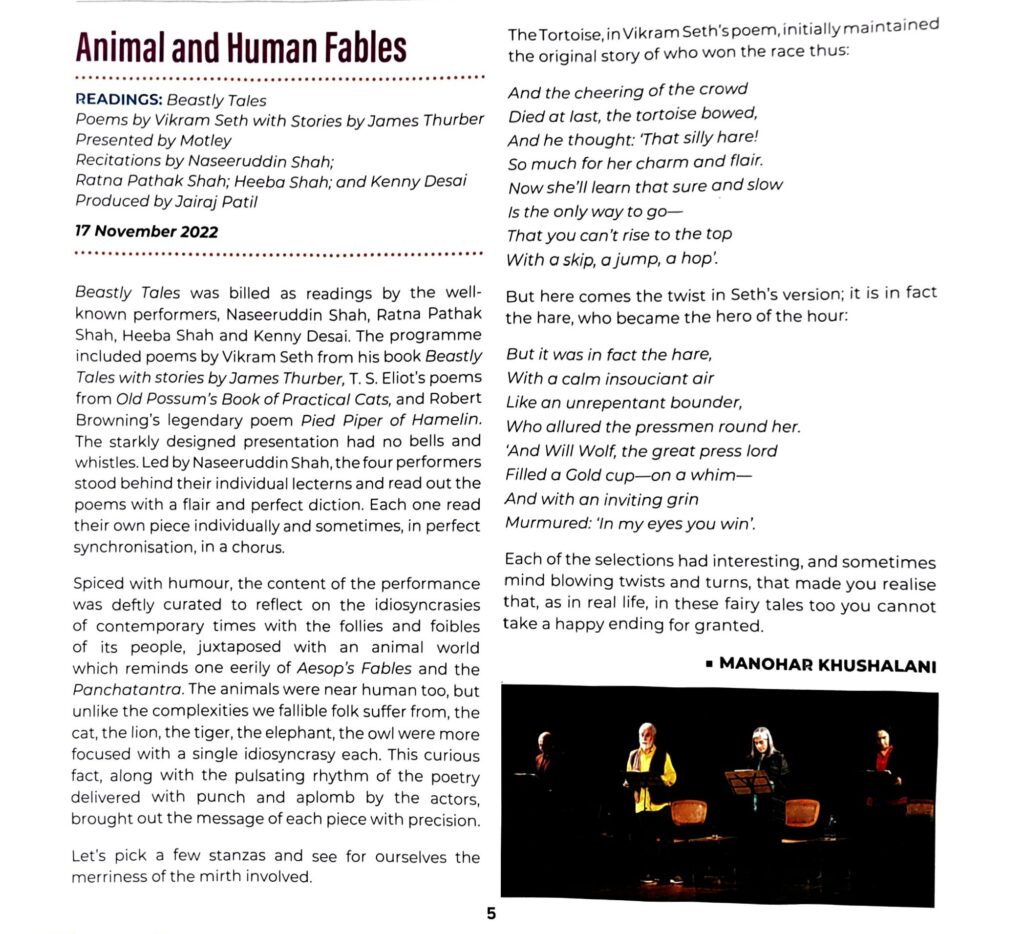Beastly Tales: Animal and Human Fables

Beastly Tales : Animal and Human Fables
A review by Manohar Khushalani
READINGS: Beastly Tales
Poems by Vikram Seth with Stories by James Thurber
Presented by Motley
Recitations by Naseeruddin Shah;
Ratna Pathak Shah; Heeba Shah; and Kenny Desai
Produced by Jairaj Patil
17 November 2022
Beastly Tales was billed as readings by the well-known performers, Naseeruddin Shah, Ratna Pathak Shah, Heeba Shah and Kenny Desai. Produced by Jairaj Patil for Motley, the heavily attended event included poems by Vikram Seth, from his book ‘Beastly Tales with stories by James Thurber’, TS Eliot’s poems from ‘Old Possum’s Book of Practical Cats’ and Robert Browning’s Legendary poem ‘Pied Piper of Hamelin’. The starkly designed presentation had no bells and whistles. Led by Naseeruddin Shah, the four performers stood behind their individual lecterns and read out the poems with a flair and perfect diction. Each one read their own piece individually and sometimes, in perfect synchronisation, in a chorus.
Spiced with humour, the content of the performance was deftly curated to reflect idiosyncrasies of contemporary times with follies and foibles of its people juxtaposed against an animal world which reminds you eerily of ‘Fables of Aesop’ and ‘Panchatantra’. The animals were near human too, but unlike the complexities we fallible folks suffer from, the cat, the lion, the tiger, the elephant, the owl were more focussed with a single idiosyncrasy each. This curious fact, along with the pulsating rhythm of the poetry delivered with a punch and an aplomb by the actors brought out the message of each piece with precision.
Let’s pick a few stanzas from here and there and see for ourselves the merriness of the mirth involved.
The Tortoise, in Vikram Seth’s poem, initially maintained the original story with who won the race thus:
“And the cheering of the crowd
Died at last, the tortoise bowed,
And he thought: “That silly hare!
So much for her charm and flair.
Now she’ll learn that sure and slow
Is the only way to go –
That you can’t rise to the top
With a skip, a jump, a hop”
But here comes the twist in Seth’s version, it is in fact the hare, who became the hero of the hour:
But it was in fact the hare,
With a calm insouciant air
Like an unrepentant bounder,
Who allured the pressmen round her.
“And Will Wolf, the great press lord
Filled a Gold cup — on a whim –
And with an inviting grin
Murmured: “In my eyes you win.”
Each of the selections had interesting, and sometimes mind blowing twists and turns, that be made you realise that, as in real life, in these fairy tales too you cannot take a happy ending for grantedFirst Published in IIC Diary Nov-Dec 2022
First Published in IIC Diary Nov-Dec 2022

